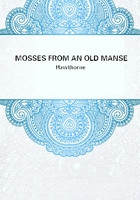
第14章 RAPPACCINI'S DAUGHTER(1)
We do not remember to have seen any translated specimens of the productions of M. de l'Aubepine--a fact the less to be wondered at, as his very name is unknown to many of his own countrymen as well as to the student of foreign literature. As a writer, he seems to occupy an unfortunate position between the Transcendentalists (who, under one name or another, have their share in all the current literature of the world) and the great body of pen-and-ink men who address the intellect and sympathies of the multitude. If not too refined, at all events too remote, too shadowy, and unsubstantial in his modes of development to suit the taste of the latter class, and yet too popular to satisfy the spiritual or metaphysical requisitions of the former, he must necessarily find himself without an audience, except here and there an individual or possibly an isolated clique. His writings, to do them justice, are not altogether destitute of fancy and originality; they might have won him greater reputation but for an inveterate love of allegory, which is apt to invest his plots and characters with the aspect of scenery and people in the clouds, and to steal away the human warmth out of his conceptions. His fictions are sometimes historical, sometimes of the present day, and sometimes, so far as can be discovered, have little or no reference either to time or space. In any case, he generally contents himself with a very slight embroidery of outward manners,--the faintest possible counterfeit of real life,--and endeavors to create an interest by some less obvious peculiarity of the subject. Occasionally a breath of Nature, a raindrop of pathos and tenderness, or a gleam of humor, will find its way into the midst of his fantastic imagery, and make us feel as if, after all, we were yet within the limits of our native earth. We will only add to this very cursory notice that M. de l'Aubepine's productions, if the reader chance to take them in precisely the proper point of view, may amuse a leisure hour as well as those of a brighter man; if otherwise, they can hardly fail to look excessively like nonsense.
Our author is voluminous; he continues to write and publish with as much praiseworthy and indefatigable prolixity as if his efforts were crowned with the brilliant success that so justly attends those of Eugene Sue. His first appearance was by a collection of stories in a long series of volumes entitled "Contes deux fois racontees." The titles of some of his more recent works (we quote from memory) are as follows: "Le Voyage Celeste a Chemin de Fer," 3 tom., 1838; "Le nouveau Pere Adam et la nouvelle Mere Eve," 2 tom., 1839; "Roderic; ou le Serpent a l'estomac," 2 tom., 1840; "Le Culte du Feu," a folio volume of ponderous research into the religion and ritual of the old Persian Ghebers, published in 1841; "La Soiree du Chateau en Espagne," 1 tom., 8vo, 1842; and "L'Artiste du Beau; ou le Papillon Mecanique," 5 tom., 4to, 1843. Our somewhat wearisome perusal of this startling catalogue of volumes has left behind it a certain personal affection and sympathy, though by no means admiration, for M. de l'Aubepine; and we would fain do the little in our power towards introducing him favorably to the American public. The ensuing tale is a translation of his "Beatrice; ou la Belle Empoisonneuse," recently published in "La Revue Anti-Aristocratique." This journal, edited by the Comte de Bearhaven, has for some years past led the defence of liberal principles and popular rights with a faithfulness and ability worthy of all praise.
A young man, named Giovanni Guasconti, came, very long ago, from the more southern region of Italy, to pursue his studies at the University of Padua. Giovanni, who had but a scanty supply of gold ducats in his pocket, took lodgings in a high and gloomy chamber of an old edifice which looked not unworthy to have been the palace of a Paduan noble, and which, in fact, exhibited over its entrance the armorial bearings of a family long since extinct. The young stranger, who was not unstudied in the great poem of his country, recollected that one of the ancestors of this family, and perhaps an occupant of this very mansion, had been pictured by Dante as a partaker of the immortal agonies of his Inferno. These reminiscences and associations, together with the tendency to heartbreak natural to a young man for the first time out of his native sphere, caused Giovanni to sigh heavily as he looked around the desolate and ill-furnished apartment.
"Holy Virgin, signor!" cried old Dame Lisabetta, who, won by the youth's remarkable beauty of person, was kindly endeavoring to give the chamber a habitable air, "what a sigh was that to come out of a young man's heart! Do you find this old mansion gloomy?
For the love of Heaven, then, put your head out of the window, and you will see as bright sunshine as you have left in Naples."Guasconti mechanically did as the old woman advised, but could not quite agree with her that the Paduan sunshine was as cheerful as that of southern Italy. Such as it was, however, it fell upon a garden beneath the window and expended its fostering influences on a variety of plants, which seemed to have been cultivated with exceeding care.
"Does this garden belong to the house?" asked Giovanni.